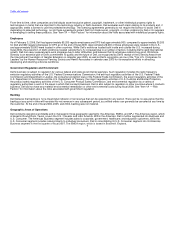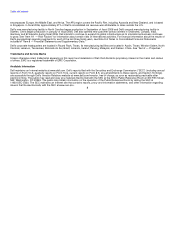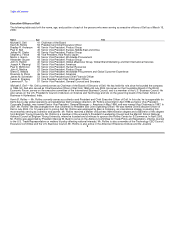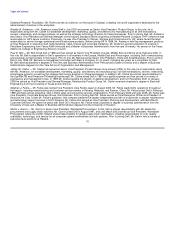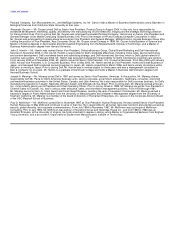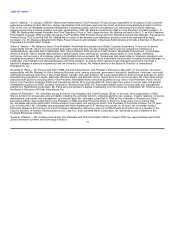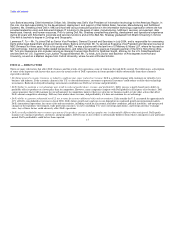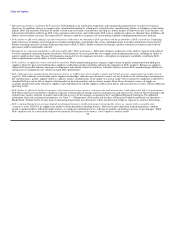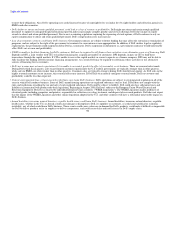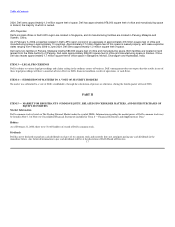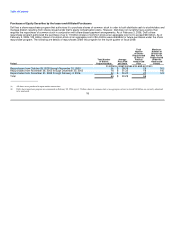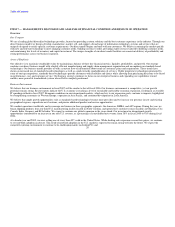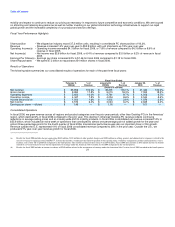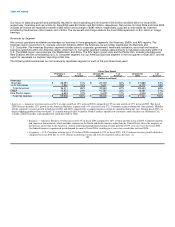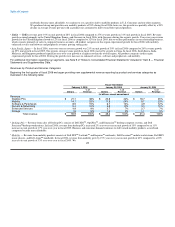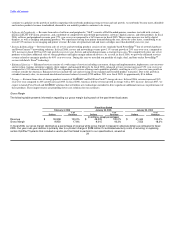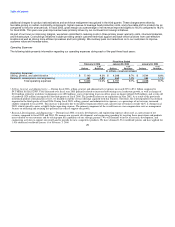Dell 2005 Annual Report Download - page 18
Download and view the complete annual report
Please find page 18 of the 2005 Dell annual report below. You can navigate through the pages in the report by either clicking on the pages listed below, or by using the keyword search tool below to find specific information within the annual report.
Table of Contents
to meet their obligations. Also, Dell's operating costs could increase because of copyright levies or similar fees by rights holders and collection agencies in
EMEA and other countries.
• Dell's failure to attract and retain qualified personnel could lead to a loss of revenue or profitability. Dell might not attract and retain enough qualified
personnel to support its anticipated rapid international growth and its increasingly complex product and service offerings. Dell relies in part on equity
awards to attract and retain qualified personnel. Due to new accounting regulations requiring the expensing of stock options, if Dell continues to rely on
equity compensation to attract and retain qualified personnel, Dell's compensation costs may increase.
• Loss of government contracts could harm Dell's business. Government contracts are subject to future funding that may affect the extension or termination of
programs, and are subject to the right of the government to terminate for convenience or non-appropriation. In addition, if Dell violates legal or regulatory
requirements, the government could suspend or disbar Dell as a contractor. Dell's suspension or disbarment as a government contractor would unfavorably
affect Dell's net revenue and profitability.
• If DFS is unable to facilitate financing for Dell's customers, Dell may be required to self-finance these activities or use alternative sources of financing. Dell
depends on DFS, a joint venture with CIT, to facilitate financing for a significant number of customers. DFS depends, in part, on CIT to fund these
transactions through the capital markets. If CIT is unable to access the capital markets or ceases to operate as a finance company, DFS may not be able to
fully facilitate the funding of Dell customer financing arrangements. As a result, Dell may be required to self-finance these activities or use alternative
sources of financing for its customers.
• Dell's net revenue may not meet expectations if it is unable to accurately predict the effect of seasonality on its business. There are seasonal sales trends.
During Dell's third fiscal quarter, sales to government customers (particularly the U.S. federal government) are typically stronger than in other quarters,
while sales in EMEA are often weaker than in other quarters. Consumer sales are typically strongest during Dell's fourth fiscal quarter. As Dell sales in the
highly seasonal consumer sector increase, this seasonal effect may increase. If Dell fails to accurately anticipate seasonal trends, Dell's net revenue and
profitability could be less than expected.
• Current environmental laws, or laws enacted in the future, may harm Dell's business. Dell's operations are subject to environmental regulation in all of the
areas in which Dell conducts business. Some of Dell's manufacturing operations use regulated substances such as lead. If Dell does not comply with the
rules and regulations regarding the use and sale of such regulated substances, Dell could be subject to liability. Dell could also face substantial costs and
liabilities in connection with product take-back legislation. Beginning in August 2005, Dell was subject to the European Union Waste Electrical and
Electronic Equipment Directive as enacted by individual European Union countries ("WEEE Legislation"). The WEEE Legislation makes producers of
electrical goods, including computers and printers, responsible for collection, recycling, treatment, and disposal of recovered products. Dell does not expect
that the impact of the WEEE Legislation and other similar legislation adopted in the U.S. and other countries will have a substantial unfavorable impact on
Dell's business.
• Armed hostilities, terrorism, natural disasters, or public health issues could harm Dell's business. Armed hostilities, terrorism, natural disasters, or public
health issues, whether in the U.S. or abroad, could cause damage or disruption to Dell, its suppliers or customers, or could create political or economic
instability, any of which could harm Dell's business. These events could cause a decrease in demand for Dell's products, could make it difficult or impossible
for Dell to deliver products or for its suppliers to deliver components, and could create delay and inefficiencies in Dell's supply chain.
15




